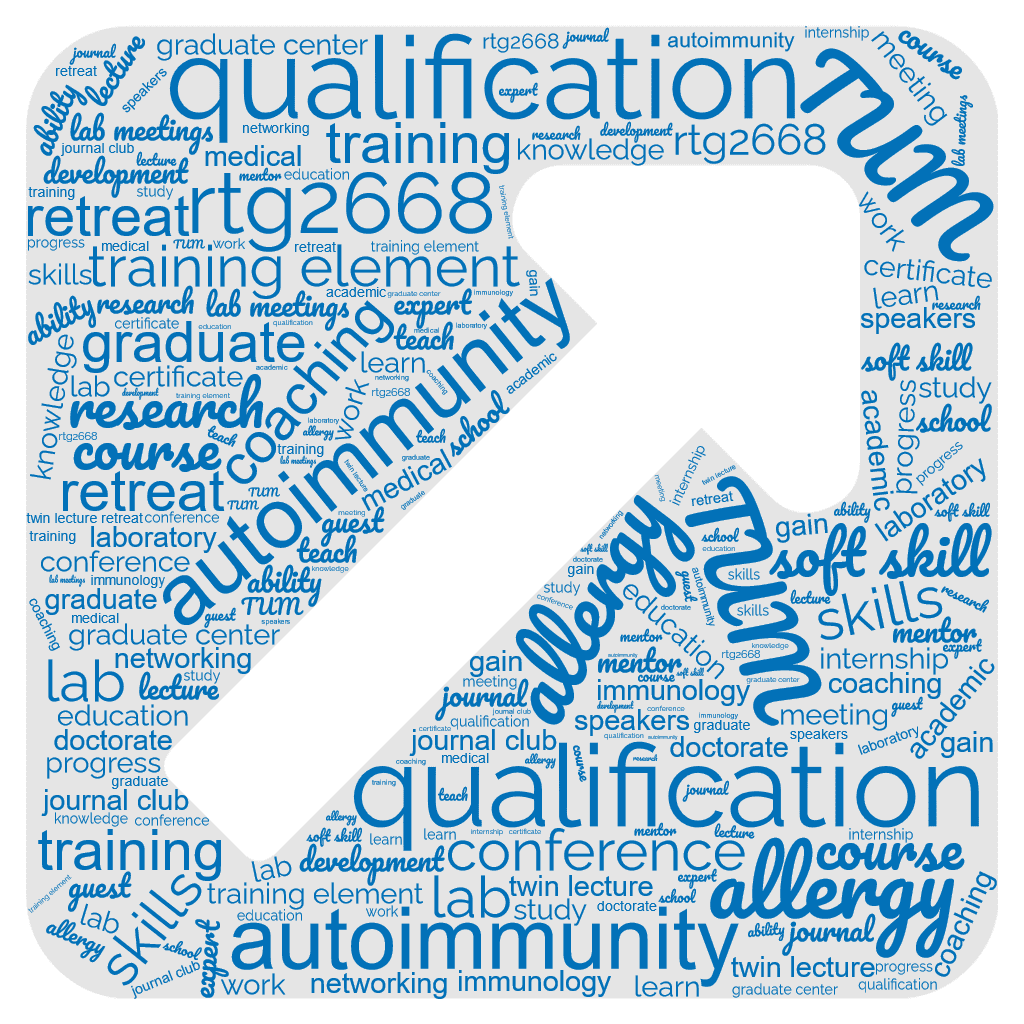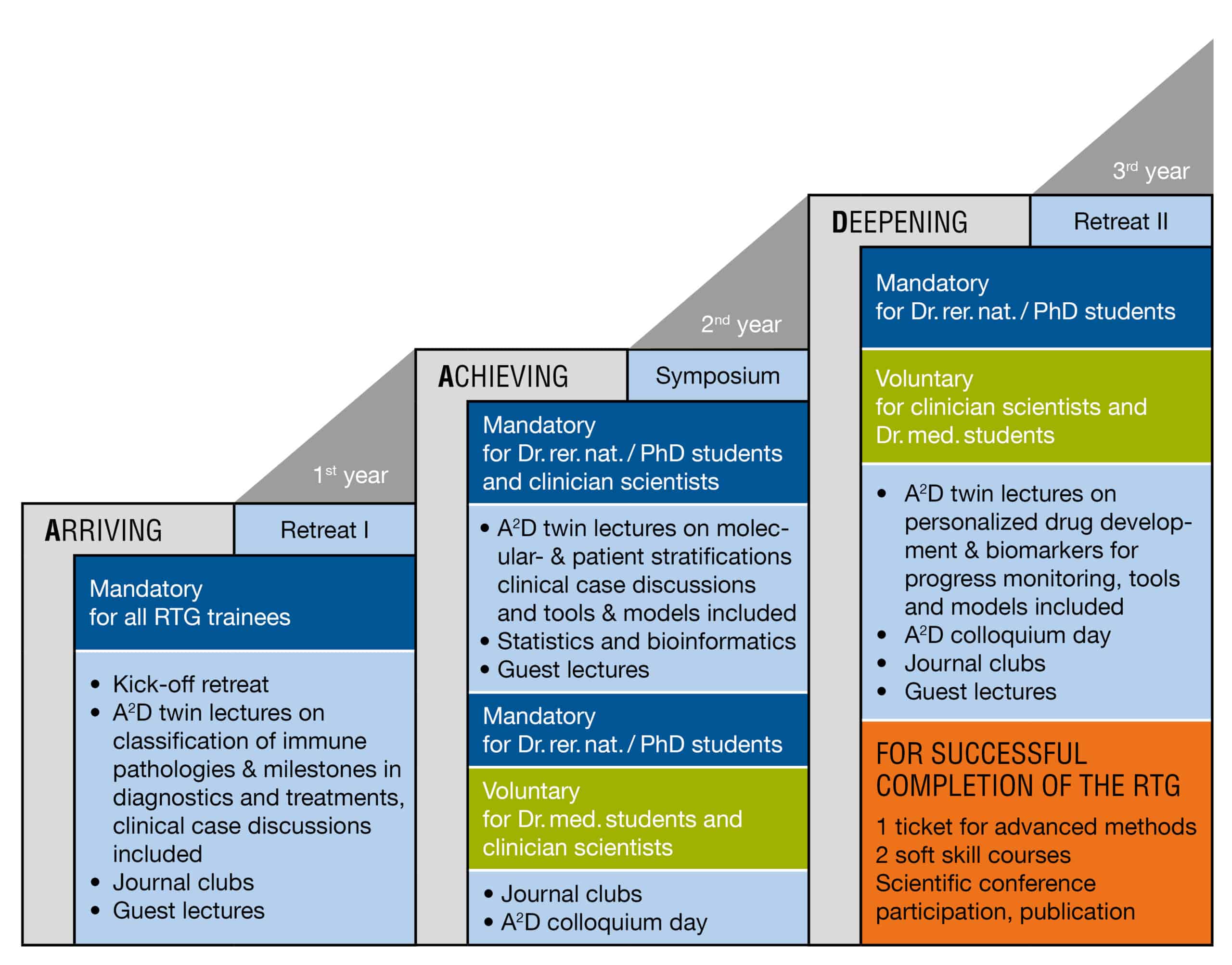Qualification concept

The RTG2668 training will focus on three main educational goals
The transfer of knowledge in translational science in allergy and autoimmunity.
The development and the acquisition of a deep understanding of practical research skills.
The important third training goal is to support the trainees` personal career development.
Integration of the different target groups in the RTG

Tailored integration concept of different RTG target groups in the graduate school’s curriculum (GSC). Trainees with life science study background and PhD students from medicine and life science will fully be integrated for three years. Medical students will be integrated for one-year full time research and clinician scientist for 1.5 years’ full time with the option of being associated for a total of 3 years.
Overview of the RTG2668 Qualification Concept

Training in the first year (Arriving phase) will be mandatory for all participating RTG members and is concluded with the first retreat. Training of the second year (Achieving phase) will be mandatory for trainees with life science background. Clinician scientists are partly involved in the second year curriculum. Medical students participate voluntarily. The third year’s curriculum (Deepening phase) will be mandatory for Dr.rer.nat. and PhD candidates.
Tandem Structure
The close cooperation of trainees with different study backgrounds forms the backbone of the A 2D translational research and training concept. Therefore, this RTG introduces tandems of trainees with a background in natural science and medicine (Dr. med. candidates or clinician scientists) in each of the research laboratories. The formation of these research tandems, which are going to embrace the idea of translational research, will generate a close exchange of disciplines, and will allow to join forces to generate added value by learning from each other and will provide long-term benefit for the trainees and the projects. The PIs have designed all projects in a way that fosters collaboration between trainees from complementary backgrounds, and thus, the program will establish a unique platform for training and peer learning.




